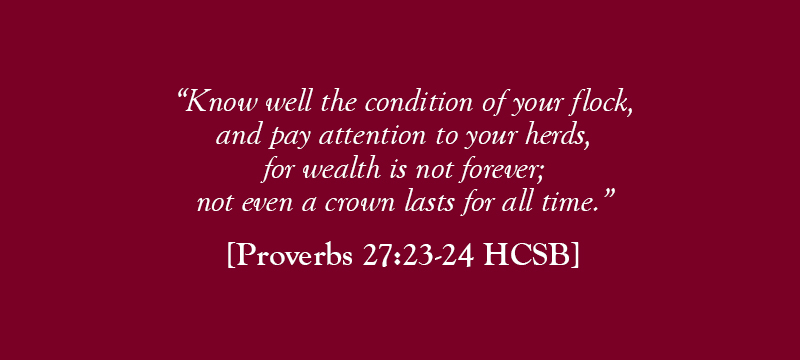Good Husbandry |
Proverbs chapters 25-29 contain Hezekiah’s special collection of Solomonic proverbs. Hezekiah’s scholars limited themselves to ten themes, including what our British linguistic forebears called “good husbandry,” that is, the wise management of life. I recently taught on these passages and received some insightful mail afterwards. Hoping they will do the same for you, I below share are a few comments that edified me.
My family and I moved here initially because of a start-up. With its subsequent failure and the attendant financial challenges, there is a palpable temptation to be less generous. But no. Our God is greater! He provides, and good management demands I respond by giving joyfully. – Charles
In teaching management, I use a picture of a man standing in front a wall. He is unsuccessfully trying to reach the top. Below his feet are dozens of ladders, but they are horizontally scattered all around on the ground. Above I have the caption “It doesn’t matter how many resources you possess if you don’t manage them well.” – Elizabeth
Some of my High School students have expressed the idea that Marxism and Communism were not evil in fact; they just didn’t work in reality. Some speculate that if Marxism could be enforced without atheism, the system would prove ideal. As we have been studying Proverbs, the truth seems rather different. In biblical husbandry, God calls us to take His provision and build things to last. Yet Marxism is all about tearing down/destroying what exists and creating utopian systems ex nihilo. There can thus be no God in communism as the human “creators” fear competition. I look forward to talking with my students about Proverbs. – Allison
As we studied Proverbs 27, I summarized in my notes: “Carefully pursue well-counseled plans instead of Cinderella dreams.” – Thomas
God bless,
Wayne
